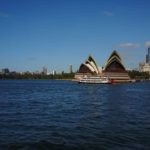It had been recommended that I visit Selma, Alabama on my way to Atlanta because of the importance the town held to the Civil Rights Movement. The Selma to Montgomery march, in 1965, began in Selma with “Bloody Sunday” in 1965 and ended with 25,000 people entering Montgomery, the state’s capitol, at the end as people pushed for voting rights. This activism generated national attention and shined a light on social justice. That summer the Voting Rights Act of 1965 was passed by Congress and signed by President Lyndon B. Johnson. The Edmund Pettus Bridge, in Selma, played a big role and became an icon for the events.
When I came to the Edmund Pettus Bridge, I met a young, charming fellow named Columbus, who showed a great interest in my journey. In my diary (see below), I described what a profound impact he had on me. I also met a girl in a cafe in Alabama; her talents became evident immediately. What a performance over a cup of coffee!
My Diary from the 25th of May 2015.
Selma is located on the “black belt” that stretches through the southern states, where African-Americans were kept as slaves during much of the beginning of American history. In 1965, Selma, Alabama became the primary battleground for voting rights, with frequent demonstrations taking place in Selma and surrounding communities. The Edmund Pettus Bridge became the icon for these events, including the most famous, called Bloody Sunday.
Then Senator Barack Obama held his first speech at the Edmund Pettus Bridge in Selma after being nominated as the Democratic candidate for President in 2008. On March 5, 2015, President Obama and former President George W. Bush, walked crossed the Edmund Pettus Bridge to commemorate the 50th anniversary of Bloody Sunday and the struggle for civil rights.
A young man named Columbus was standing by the bridge, selling some souvenirs and told me the story of the Bridge and the civil rights movement. He didn’t want me to leave Selma without knowing the basics that part of American history. He was charming, was a good story teller and had big dreams.
He asked me about my journey and was quite impressed that I had already nearly traveled around the world on my motorcycle and then had come to Selma. He asked many questions about my country, including how much money my nation was spending on the military. He was surprised when I told him that we are not spending a dime, because we didn’t have a military. He was even more surprised when I told him that about half of government expenses goes toward healthcare and education. He became excited as we spoke and called his friend to come over, asking me to repeat what I just said. I had the feeling that he wanted someone to witness what I said, so he would not be accused of telling a lie later.
Selma is one of the poorest regions in the country and Columbus said what was desperately needed was a strong leader. He had admired me for undertaking the journey around the world, but I said to him loud and clear: “Listen my friend. If I can go on my motorcycle all this way, around the world at 59 years old, then you can become the leader that you are talking about. I sense that you have all the ingredients that are required; the right age, ideas, courage and a very convincing story. You can change things if you want. I encourage you to start right now”. When I said this to him, I stared in his eyes and sensed that he was receiving my words.
At this moment, I felt a connection which I have experienced so many times before on my journey. I know that I influenced him and he certainly influenced me.




